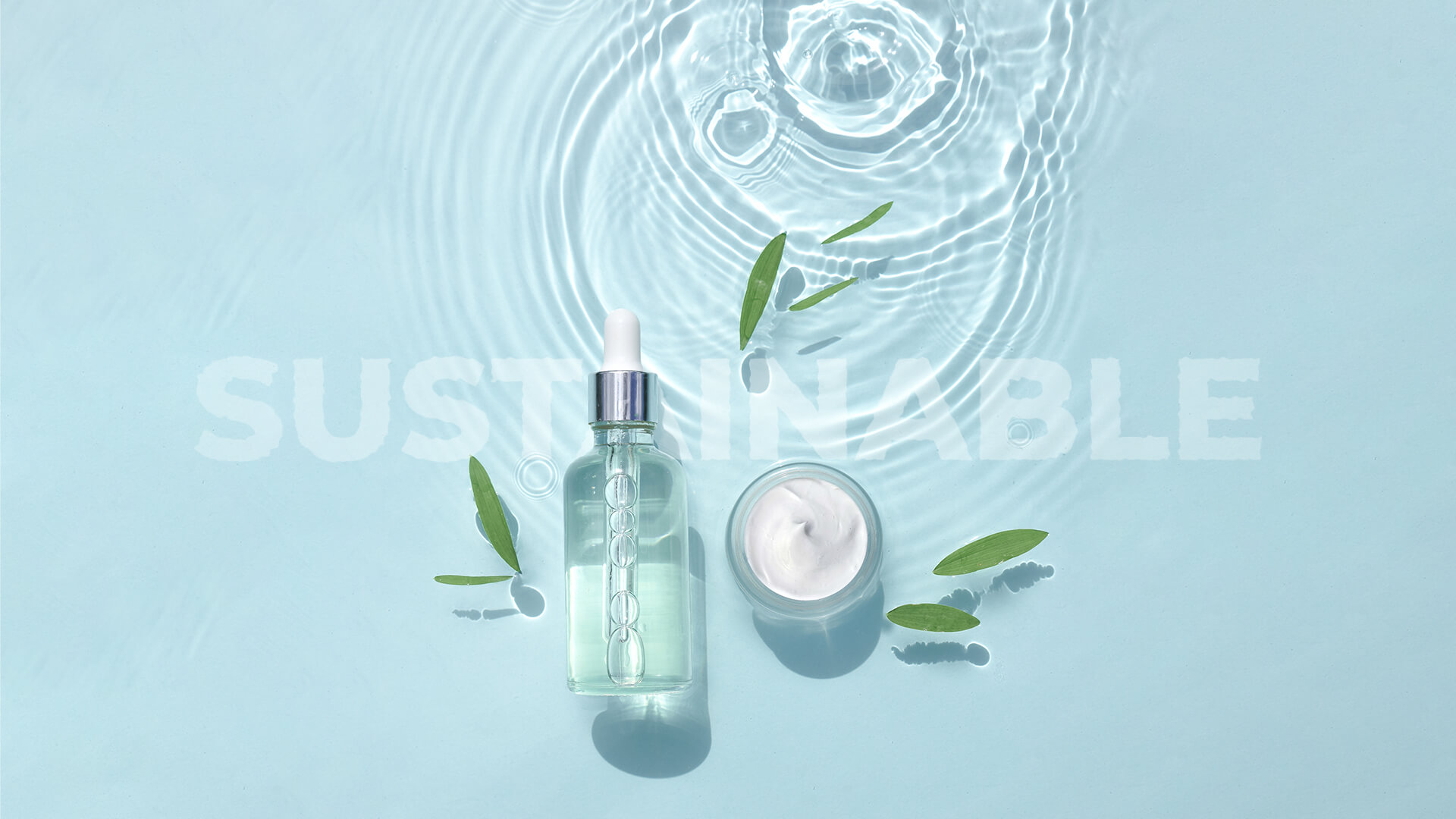Transforming Digital Beauty Experiences
Transforming Digital Beauty Experiences
Transforming Digital Beauty Experiences
The State of Corporate Social Responsibility (CSR) in the Beauty Industry Today
For most beauty brands and retailers, social responsibility has become a top priority to pursue achievable and realistic long-term goals for its community, people, and the world alike. CSR has also become one of the critical assets of their business strategy as it helps to better meet customers' expectations and take advantage of fast-changing societal needs.

By setting CSR goals and successfully backing them up with consistent, tangible, and well-communicated actions, businesses can build consumer trust and create an inclusive environment to innovate, scale, and grow. According to a study by Project ROI, effective CSR has created a positive brand image, boosted the business’ bottom line, and delivered a higher ROI compared to a beauty company with the same products that doesn't engage in CSR.
Consumers have triggered sustainability and CSR policies in the beauty industry as they become more conscious about their overall impact on the environment. According to the Pull Agency survey, 68% of consumers are uneasy or unsure about health and beauty brands teaching and promoting specific social topics. Consumers are keen to purchase from health and beauty brands that focus on ethical sustainability rather than the brand purpose, "with only 22% of U.K. consumers familiar with the term."

And with a growing number of eco-conscious consumers taking a hands-on approach when seeking out beauty products, brands are now challenged to rethink their business practices. Most importantly, they are pushed to take responsible actions to advance those efforts as the younger generation, especially millennials and Gen Z, set the tone for the rest while playing a vital role in the industry's bracket.
As a result, many brands are now focusing on sustainability to align with customers' sustainable, inclusive and ethical beliefs. They are looking for ways to enhance its environmental initiatives, boost customer loyalty, and strengthen its reputation while ensuring a positive impact (both social and ecological) on its community.
Breaking Down the Five Types of CSR
CSR initiatives vary significantly in the beauty industry. Still, most beauty businesses aim to work together to reduce environmental impacts, deliver on their brands' promises, and make customers' journeys sustainable, inclusive and affordable.
According to research from James Rubin and Barie Carmichael’s "Reset: Business and Society in the New Social Landscape" book, 68% of people say knowing how a company is doing its business is more important than knowing what it sells, with 75% of people saying they act upon their beliefs about a brand. These metrics inevitably influence the CSR standards many beauty brands build and adopt.
From No7 Beauty Company to global giant AS Watson Group, from luxurious cosmetics brand Tata Harper or BABOR to mass-market brand Nars, many beauty businesses are jumping on the beauty and eco-friendly cosmetics bandwagon.
Large multinationals and the leading beauty retailers are taking a more holistic approach to sustainability, enabling them to address various issues simultaneously. Those companies reduce their carbon footprint, address climate change problems, or look at social dimensions like DEI and corporate philanthropy. All of which can be split into five categories: environmental, philanthropic, ethical (DEI), innovation & digital transformation, and economic responsibility.
Group-level health retailers are introducing practices and pillars to give back to the community through different initiatives. For instance, AS Watson Group has partnered with Operation Smile to launch "Give a Smile," a global health-focused sustainability program to give hope to children born with cleft lip or palate. CVS Health has launched CVS.com/gogreen to provide a single digital platform for customers to educate them about their sustainable product offerin


Other group-level beauty brands and retailers create and curate inclusive, sustainable brands and experiences while providing more social impact investments and promoting healthy beauty standards. For instance, Target introduced its "Target Forward" strategy to advance the retailer's social and environmental sustainability. At the same time, Ulta highlighted the launch of "the development of omnichannel experiences, the launch of community-focused initiatives, and improvements in its environmental and social impact as key strategic priorities."

Shiseido also introduced a set of initiatives, including the extension of its partnership with Cutaneous Biology Research Center (CBRC) "to create cutting-edge value through research in dermatology and the development of innovative cosmetic products." Some beauty brands and retailers like Estee Lauder Group aim to embrace D&I, as the brand aims to become the most inclusive beauty company in the world. Estee Lauder Group hopes to achieve gender pay equity by 2023 and globally increase the representation of women across its regions and affiliates.

The Shift in Environmental Responsibility from Consumers to Businesses
This shift towards more socially responsible and sustainable brand practices comes from the end-consumer, who want to make a difference. They're looking for brands that serve a holistic and meaningful purpose throughout the entire customer journey. Moreover, they keep brands accountable for every decision they make, whether positive or negative. This is why brands also face particular challenges in reassuring worried consumers that they are committed to sustainability.
According to the latest research from the newly-released Mintel Sustainability Barometer, consumers worldwide believe companies are the most responsible for a whole presentation of sustainability practices and acknowledge their contributions matter. Findings show that almost half (48%) of consumers globally believe companies should increase the use of recycled materials. Only 25% of respondents believe responsibility lies with consumers and just a fifth (20%) with governments.
Recent consumer surveys carried out by GlobalData suggest that the effects of the strict lockdown periods have made ESG (Environmental, Social, and Governance) more crucial than ever, as consumers increasingly question their consumption habits, want to protect the environment, and are openly scrutinizing a brand's or a retailer's activities on social media channels.
Globally, attitudes towards sustainability vary between countries and generations. Based on the Global Sustainability research conducted by Simon-Kucher & Partners, 85 % of customers indicate that they are now considering eco-friendly beauty products to be more sustainable. However, there are meaningful shifts in generational attitudes. 40% of Millennials and Gen Z have chosen a more sustainable alternative, whereas older generations are less likely to actively search for sustainable products (24-29 %)

Moreover, today's consumers are keener to understand their contribution through purchasing and whether or not brands support their beliefs and align with their social and ethical values. For instance, a survey conducted by Mintel shows that 48% of customers want to know whether their purchase has a positive impact on the environment, "such as one tree planted per purchase."
As a result, customers expect brands and retailers to become more transparent about their positive credentials and await brands to provide more information and education about their contribution throughout their customer journey.
"Educating consumers about sustainability should help increase their engagement, as there seems to be a sustainability gap—a striking difference between consumers' experience with the causes of climate change and the reality of where the responsibilities lie. One of the major challenges for brands is effectively closing this understanding gap to better position their products and services as part of the sustainability solution," said Richard Cope, Senior Trends Consultant, Mintel Consulting
The Power of Personalization to Deliver on CSR
Personalization helps brands make customers feel more valued, appreciated, and heard. Customers now expect beauty companies to guide them to the right products and provide more personalized, inclusive, and seamless brand experiences throughout the entire customer journey.
The combined power of technology and personalization is one of the most critical elements to help brands towards sustainability goals and cut down on unnecessary waste. Together, they positively impact the environment that "results in reduced environmental issues related to overconsumption, product returns, and waste" – Beauty Matter 2021 research.
When personalization is carried out effectively, brands can engage on a deep, personal level with their consumers, strengthening the bond between the brand and consumer. According to a survey by Epsilon, around 80% of consumers are more likely to purchase from a brand if it offers personalized experiences, and 90% of them indicated that they find personalization appealing.
With the right technology investments and accurate personalization, brands can engage in more transparent communications with their customers by providing deeper context across the customer journey. Moreover, personalization programs executed at scale can help beauty brands and retailers gather rich zero-first-party data to help them understand the differences across customer segments.
Klarna's Shopping Pulse report shows that 91% of consumers expect brands to offer hybrid shopping experiences (both online and in-store), and 40% of global consumers expect personalized product recommendations online. "Shoppers miss the physical elements of the in-store experience that can only be offered in a brick-and-mortar setting, like fitting rooms. However, they also have new expectations about the in-store shopping journey," said David Sykes, Head of US at Klarna.

With the help of technology, brands and retailers can underline the implications of decisions, whether purchasing a new product online or in-store or using augmented reality to make a business case for sustainable investment. Most importantly, helping to influence customers' choices – educating and empowering them to make more eco-conscious purchasing decisions. For instance, a Swedish beauty tech company Ellure is now making makeup more sustainable by decreasing operational complexity and stocking risk with 3D printing. Following the first attempts to build a lipstick printer, the brand has discovered the problem of overproduction. This is why they decided to empower brands to tackle this issue by producing tailored-made products, which results in the ratio of unsold products down to 0% while ensuring all ranges of colors can still be provided.
On the other hand, personalization and customization can lead to infinite product differentiation in saturated markets. An endless array of choices may influence shoppers to make superfluous purchases, especially in online/e-commerce spaces. Beauty tech companies like revieve help to build a robust personalized brand experience to inspire more mindful consumption through tailored beauty experiences and product recommendations.
Transparent, experiential shopping can lead to more confident purchase decisions and helps to reorient consumers away from a quantity mindset towards a focus on quality. For instance, with AI/AR technology, brands and retailers can impact overconsumption and unused products by recommending products that precisely meet customers' unique needs. Beauty businesses need top-notch visibility into all processes, activities, and strategies to deliver on CSR brands' promises and achieve the desired goals.

The Roadmap to a Sustainable Digital Infrastructure
Digital strategy and sustainability are equally important and are increasingly intertwined. In recent research by Bain & Company and the World Economic Forum, "40% of respondents said they believe digital technologies are already positively impacting their sustainability goals."
Especially in the beauty industry, establishing a sustainable digital roadmap is critical for brands and retailers aiming to continuously innovate and become as resilient and robust as possible to tackle environmental issues. While most beauty brands are implementing technology and winning the personalization battle while maintaining a successful CSR strategy, the ability to provide a holistic, sustainable digital infrastructure that drives a purpose beyond profit remains a challenge for many businesses.
Below are some fundamental principles every brand should take into consideration when building a holistic digital roadmap toward a more sustainable future:
1. Provide highly personalized digital customer experiences and ensure they serve a meaningful purpose contributing to a sustainable outcome:
Technology and personalization enable brands and retailers to unpack precisely their customers' intentions and needs, helping to uplift their beauty journey by recommending the right products. Beauty technology companies like revieve help brands and retailers provide customers with inclusive and realistic tools, curating a more inclusive brand experience for every shopper while making customers purchase with care and purpose. For instance, revieve's Skin Coach serves as a portal where customers can get information about the brand and its products, learn more about their skin, set personal skin goals, and track their skin improvements over time. As a result, customers will make more informed and conscious purchase decisions.

2. Find the winning formula for brand CSR and digital efforts that resonate with your audience:
To best respond to customers' needs and communicate social, environmental, and ethical values to customers in a more comprehensive way, brands have to understand their audiences on a more personal level. Understanding the unique differences between shoppers means you can provide customers with the right tools and a seamless experience while successfully promoting CSR efforts throughout the entire customer journey. Collecting and analyzing zero- and first-party data allows for a level of consumer understanding required to serve the individual shopper's needs and tug customers' heartstrings. Once brands can engage with shoppers more intimately, customers are more likely to resonate with the business's message and purchase from the brand again.

Delivering a suite of tech-powered experiences helps create valuable and meaningful experiences to make consumers' sharing of their preferences more rewarding. It enables brands to earn customer loyalty, making the customer care for the brand even more.
3. Bridge the "the say-do" gap through personalization:
According to Changing Markets Foundation report, 60% of sustainable beauty claims are greenwashing. Despite pledges to reduce their product waste, enhance DEI, or reduce their environmental footprint, many brands still fail to deliver. For conscious consumers who prioritize sustainability, diversity, and inclusion, hyper-personalization enriched with the power of data and technology can provide companies with experiences to prevent misleading claims. Most customers don't always know how to make the right choices or are very aware of the products they need. This is why brands can utilize product recommendations powered by AI and AR technology, helping customers understand what they're choosing and the sustainable impact that might have. This comes with making sure these beauty products and experiences are accessible and that there doesn't have to be a trade-off for those on lower incomes between cheap and sustainable. For example, you're helping customers make more informed shopping decisions with AI and AR technologies and offering a more carbon-emission-friendly method for product sampling - such as virtually trying on makeup. A study from MIT found that an online shopper has a carbon footprint two times smaller than a traditional in-store shopper.
4. Empower the self-aware consumers at each stage of their customer journey:
Brands and retailers should be delivering a seamless brand experience to customers wherever they're at. In an attempt to craft a personalized brand experience that aligns with customers' needs and seamlessly communicates its CSR efforts, many brands turn to AI.
AI can support brands in crafting a personalized brand experience that aligns with customers' expectations and can live anywhere the brand is. Companies understand the vital role of personalization in retaining loyal customers and brand advocates, enabling brands to create long-standing relationships with their customer base. For that reason, brands and retailers are now moving away from standalone solutions and starting to provide customers with an ecosystem of knowledge, expertise, and customization powered by a suite of technologies.
As more beauty companies think about technology and their sustainability agendas, they should ask whether they are bringing game-changing technology and digital thinking to meeting sustainability goals—or whether this critical business issue is missing an important dimension.

Contact us today to get started with your personalization journey!





